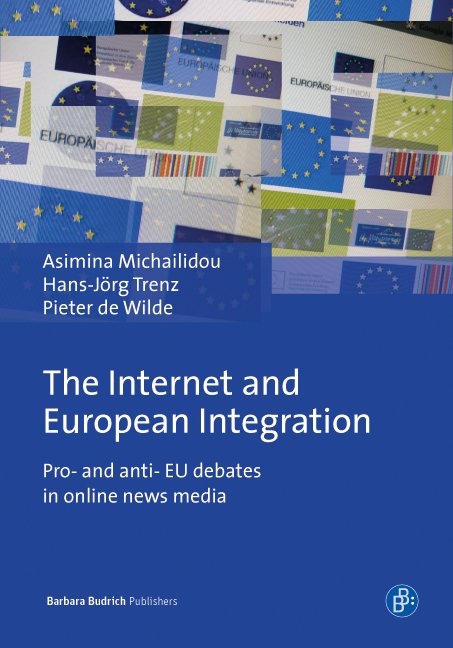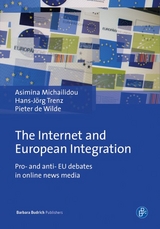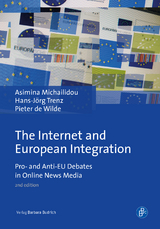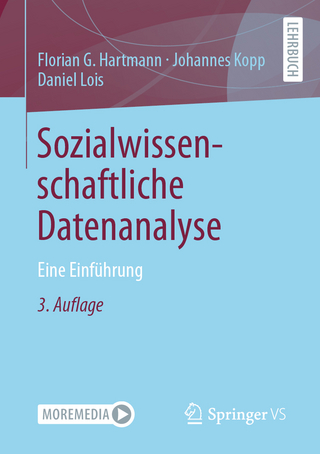The Internet and European Integration
Verlag Barbara Budrich
978-3-8474-0153-7 (ISBN)
Dr. Asimina Michailidou is a Senior Researcher at the ARENA Centre for European Studies, University of Oslo, Norway. Prof. Hans-Jörg Trenz is the Vice Chair of the Center for Modern European Studies, University of Copenhagen, Denmark. Dr. Pieter de Wilde is a Senior Researcher at the Social Science Research Center Berlin (WZB), Germany.
This book offers a wealth of original empirical data on how online media shape EU contestation. What EU citizens most intensely debate online are the fundamental questions of what the European institutions stand for and how they can be held accountable. There is no doubt that EU citizens have strong opinions about the EU and interactive online media allow these opinions to come to the fore, to be challenged and amplified both within and beyond national public spheres. Yet, for all its potential to unite European publics, online EU contestation remains firmly anchored in offline news media frames, while citizens and journalists alike struggle to put forward a clear vision of the future EU polity.
GMK-Newsletter 4/2014
| Erscheint lt. Verlag | 19.11.2014 |
|---|---|
| Verlagsort | Leverkusen-Opladen |
| Sprache | englisch |
| Maße | 148 x 210 mm |
| Gewicht | 469 g |
| Themenwelt | Sozialwissenschaften ► Kommunikation / Medien ► Medienwissenschaft |
| Sozialwissenschaften ► Politik / Verwaltung | |
| Schlagworte | Berichterstattung • Debatte • Europa; Berichte/Erinnerungen • Europäische Einigung • Europäische Union (EU) • European Union • Euroscepticism • Internet; Einzelne Sachgebiete • Media Studies • Online-Journalismus • Online media • political communication • Postgrads • researchers in European Studies • Undergrads |
| ISBN-10 | 3-8474-0153-X / 384740153X |
| ISBN-13 | 978-3-8474-0153-7 / 9783847401537 |
| Zustand | Neuware |
| Haben Sie eine Frage zum Produkt? |
aus dem Bereich





